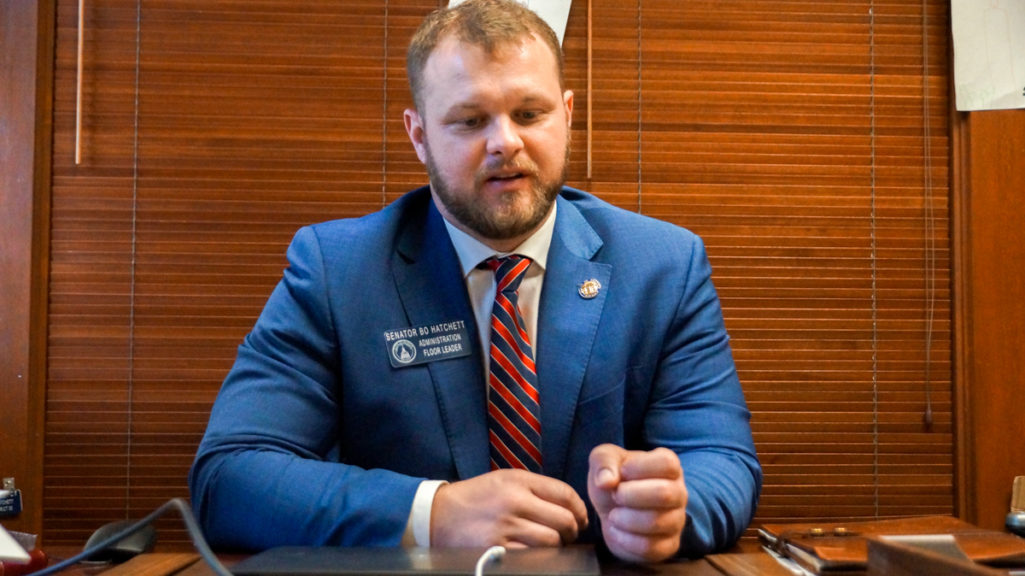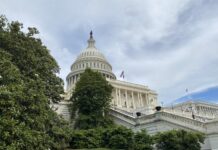During Thursday’s Senate majority press conference, District 50 State Senator Bo Hatchett, freshman lawmaker of Habersham County, announced the introduction of his bill to ban critical race theory (CRT) for Georgia schools.
The bill, Senate Bill 377, would prohibit local boards of education, the University System of Georgia, the Technical College System of Georgia and Georgia’s state agencies from teaching CRT.
“Governor Kemp and the state board of education have taken action to thwart this type of corrosive ideology from seeping into our schools,” Hatchett said. “Based on conversations with constituents and colleagues, I believe there is more work that needs to be done.”
Hatchett said during the press conference that while banning CRT outright may be the most straightforward approach, he believes it’s necessary to define the exact terms of what the party wants to stop.

“For example, if you as a reporter call a local school board and ask about CRT, they will likely respond with the definitive ‘we do not teach critical race theory in our schools,'” he said. “But in some cases, that’s like saying they don’t teach mathematics while knowing they do teach addition, subtraction, multiplication and division.”
RELATED: Hatchett, Anderson discuss support for Kemp’s legislative agenda
He said that the state needed to define the concepts of CRT that they believe are being taught in Georgia colleges, universities and K-12 schools. He says the majority of Georgians reject the concepts of CRT and should be kept out of schools.
“Our students should not be taught that any one race, ethnicity or skin color is inherently superior to another race, ethnicity or skin color,” Hatchett said. “They should not be taught that an individual solely, because of his or her race, ethnicity or skin color is inherently racist, oppressive, or has some type of prejudice, whether consciously or subconsciously. They should not be taught that an individual’s moral character is inherently determined by his or her race, ethnicity, or skin color bears responsibilities for actions committed by other individuals of the same race, ethnicity or skin color, whether past or present.”
READ: Proposed bill banning CRT in Georgia
Hatchett says he looks forward to having objective discussions about the proposed bill throughout the session with other legislators.
“I believe we can reach a common ground on the process, we can uphold free speech and academic freedom while ensuring that our history, with all of its shining moments and its painful stains, is something we are to learn from, not something that is stamped into our DNA,” Hatchett said. “I sincerely believe that if my colleagues, regardless of political party, will read the language of my bill without having some preconceived notion or knee-jerk reaction based on the mention of CRT, they will agree with me. At the core, this bill will simply be an attempt to affirm core values that unite all Georgians and mirror how we should all view our fellow man.”
CRT in Northeast Georgia
Cornelia Representative Victor Anderson, who represents District 10, told Now Habersham that while Habersham County hasn’t faced the issues other regions in the state have with discussions of CRT, he says pushing legislation through the Capitol will keep it that way.

“We haven’t had the issues that happened in other parts of the state and even in other states related to the parents being involved with their children’s education,” Anderson said. “It doesn’t hurt to have that emphasis, because it ensures going forward that other parts of the state will be run like Habersham has been run. Habersham’s board of education and our teachers are doing an excellent job.”
In the fall of 2021, a group of citizens accused the White County School District of teaching CRT in White County’s schools. The school board said that they found no evidence of CRT being taught in their schools, and declared the issue closed in October.
RELATED: White County School Board declares Critical Race Theory issue closed
The discussion hasn’t made its way into the spotlight in the Northeast Georgia region since, but Anderson and Hatchett are hopeful that with this legislation, CRT will stay that way.







